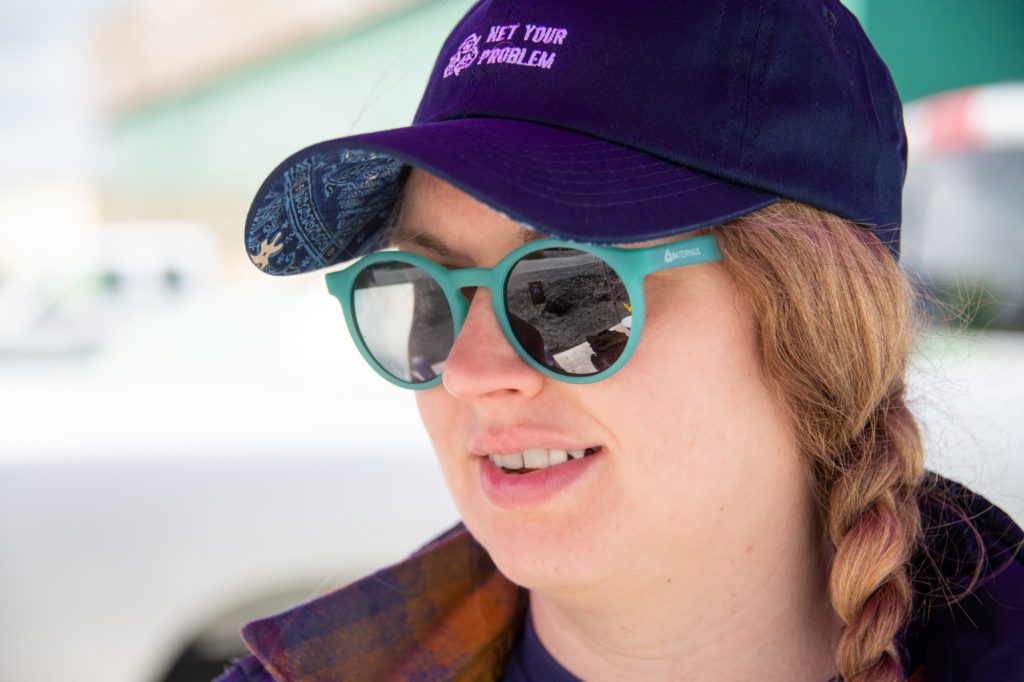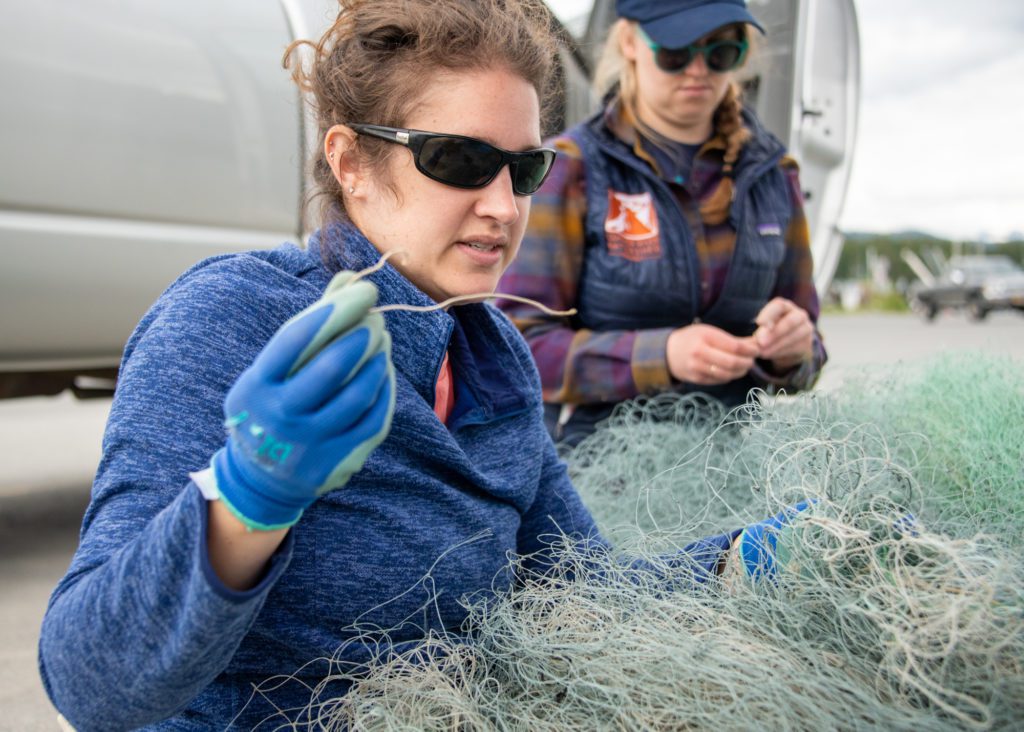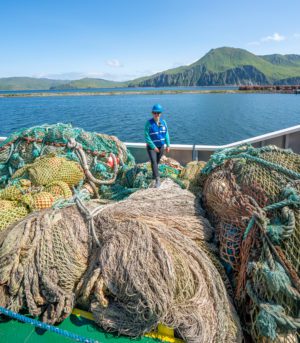
In 2020, local plastic recycling efforts were jeopardized when it was discovered that much plastic collected for recycling was being dumped back into the environment. For an extended period, most plastic sent from the U.S. to Asia for recycling was not actually recycled, wrote Copper River Watershed Project Operations Manager Shae Bowman.
“Some of it was being used as a fuel source, but not in any sort of environmentally responsible way,” Bowman said. “It was, maybe, being burned in somebody’s backyard.”
Now, CRWP has revived its fishing net collection program, sending nets to a recycler that applies more rigorous standards. Seattle-based company Net Your Problem acts as a “broker,” receiving net from Cordova, Haines, Juneau and other communities, and delivering it to recyclers in Portugal.
However, Cordova’s new recycling partners also demand cleaner nets. In fact, if netting isn’t adequately free of twine, seaweed, sticks and other such debris, CRWP may be required to pay for the net’s disposal. It takes one person about three hours of tedious work to clean a single net, Bowman said.
“This is the standard that they want, and if we don’t meet those standards, they’re not going to buy our net,” Bowman said. “This is going to be the first shipment of nets going to these recyclers, so we need to put our best foot forward.”

Net Your Problem owner Nicole Baker joined Bowman and other volunteers in picking strands of twine and other debris out of donated nets. Also participating was Patrick Simpson, an engineer who hopes to develop methods for converting plastic waste into building materials. Simpson received a $100,000 Environmental Protection Agency grant to develop a mobile plastic recycler that could be used around communities like Cordova, where shipping costs inflate the price of imported building materials.
For recyclers, receiving dirty netting is a bit like buying a bag of sugar that, once opened, reveals itself to be half full of sawdust, Baker said.
“That’s not what you agreed to buy,” Baker said. “Similarly, when we send stuff to recycling companies, it needs to be what they’ve asked for… You can tell when somebody brings a net, if it’s full of twine, they’ve not made an effort. It’s just too much work — they don’t want to deal with it. Well, we also don’t want to deal with it.”
To improve quality control, CRWP will no longer receive nets at an unattended dropoff spot, but will hold net-gathering events at least three times per year. The first such event was held on June 8-9 and June 11-12, collecting about 2,000 pounds of net. The next event is tentatively planned for late July, with a subsequent event planned for the end of fishing season in the fall. CRWP hopes to maintain the current rate of net donation, and to chip away at the backlog of donated nets that still remain to be cleaned, Bowman said.
A Thursday, June 10 barbecue fundraiser in support of CRWP net recycling program raised about $1,000, organizers said.

In Seattle, Net Your Problem gathers nets and other used fishing materials from communities around the U.S. Once enough material has been collected to entirely fill a 40-foot-long shipping container, it’s dispatched to recyclers. From 2017 to the present, the company has helped recycle 971,000 pounds of fishing gear, Baker said. However, it’s impossible for Baker to personally supervise net collection across such a far-flung operation, meaning that Net Your Problem relies on community partners like CRWP to provide high-quality, clean nets.
The recyclers can use two methods to prepare nets for reuse: netting may be ground up and made into pellets used for manufacturing plastic products, or it may be subjected to “chemical recycling,” a process that breaks down nylon and reconstitutes it into near virgin-quality plastic. As well as hard, molded components like glasses frames and knife handles, netting can be recycled into yarn used to make carpeting, clothing and other products. Recycled netting is now also being used to produce 3-D printer filament. Plastic derived from gillnets will, by default, retain the nets’ distinctive blue-green color. However, this plastic can also be recolored.
Now, Net Your Problem’s main goal is to find a way to have fishing materials recycled in the U.S., a more environmentally friendly and less logistically complex option than sending materials overseas. Though there are numerous U.S.-based plastic recyclers that work with bottles and other products, those recyclers aren’t necessarily prepared to work with fishing gear, Baker said.
Residents of communities that lack fishing gear recycling programs are invited to contact Net Your Problem, Baker said. The organization can be reached by phone at 907-359-3450 or by email at nicole@netyourproblem.com.





